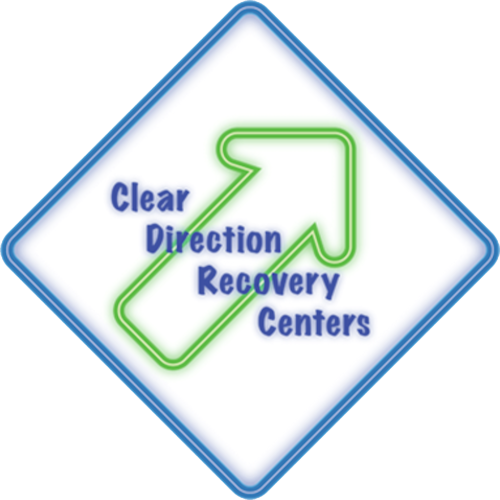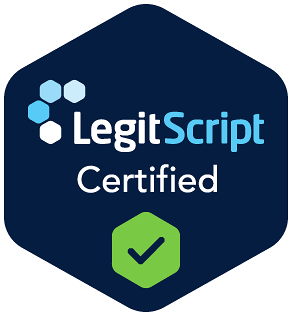Aftercare Program for Substance Abuse in New Jersey
Recovery from substance abuse and addiction doesn’t end once treatment has been completed. In fact, some would argue that it’s only just beginning. Recovery is a lifelong journey and something that has to be actively worked on daily. While successfully completing treatment and starting a new, sober journey can be exciting, it can also be overwhelming, especially when it comes to navigating daily life as a newly sober person.
That’s where aftercare comes in. An aftercare program for substance abuse is the bridge between formal treatment and everyday life. It’s a structured, personalized plan that supports those in recovery as they rebuild routines, relationships, and purpose.
Discover what an aftercare program is, the types of programs available, how to create a plan, why aftercare is a vital part of sustained recovery, and how Clear Direction Recovery can help with your recovery journey.
An aftercare program is an organized set of services and support that is provided upon the successful completion of addiction treatment. Its purpose is to reduce the risk of relapse, help maintain progress, and address the practical and emotional challenges that arise during reintegration into work, family, and community life. Aftercare can be short-term or long-term and is tailored to individual needs, risk factors, and recovery goals.
Contact Clear Direction Today!
Why Wait? Find The Help You Need By Reaching Out To Us Today! Our Admissions Team Is Standing By.
What Are the Types of Aftercare Programs?
Aftercare comes in many different forms. Some of the different types of aftercare programs include:
- Outpatient treatment: Regular therapy sessions with a counselor, often including individual and group therapy, tailored to ongoing needs
- Intensive outpatient programs (IOP): Structured therapy several times per week while living at home and continuing daily life
- Partial hospitalization (PHP): Day treatment that provides intensive care without overnight stays
- 12-Step and mutual-aid groups: Peer-led groups such as Alcoholics Anonymous (AA) or Narcotics Anonymous (NA) that offer fellowship, accountability, and shared experience
- Sober living homes: Drug-free residences that offer structured, supportive living environments during early recovery
- Peer recovery coaching: One-on-one support from someone with lived experience who helps with practical recovery tasks and navigation of resources
- Telehealth and digital recovery tools: Virtual counseling, mobile apps for cravings tracking, and online support communities that increase access and continuity
- Family-based aftercare: Services that include family therapy, education, and support to repair relationships and build healthier dynamics

How Do You Create an Aftercare Plan?
While each aftercare plan is tailored to fit the unique needs of an individual, certain core aspects are fundamental to its effectiveness. The creation process begins with a thorough assessment of the person’s unique needs and potential risks. Based on this assessment, specific and measurable goals are established to provide clear direction.
The next step involves choosing the appropriate supports and services, such as therapists, support groups, or vocational training, that will help achieve these goals. To ensure ongoing progress, a schedule for regular check-ins and accountability should be integrated into the plan. It is also crucial to develop a proactive crisis and relapse plan that outlines specific steps to take if challenges arise. Finally, an effective aftercare plan is a dynamic document that should be reviewed and revised periodically to reflect the individual’s evolving journey and needs.
What Are the Components of a Successful Aftercare Program?
Aftercare, much like treatment itself, is only as successful as the effort put into it. However, there are certain things that can be proactively done to help make it successful. This includes:
- Individualized treatment planning
- Continued therapy and counseling
- Medication-assisted treatment (MAT), when appropriate
- Peer support and community connection
- Family involvement and education
- Skills training and relapse prevention education
- Case management and navigation
- Flexible access
- Monitoring and outcomes tracking
What Are the Benefits and Goals of Aftercare in Addiction Recovery?
Aftercare aims to stabilize gains made in treatment and promote a fulfilling, substance-free life. Some of the benefits of aftercare include:
- Reduced risk of relapse and overdose
- Better management of co-occurring mental health conditions
- Increased employment and housing stability
- Stronger relationships with family and community
- Improved quality of life and well-being
Goals typically center on sustained abstinence or harm reduction, improved functioning, personal growth, and building a support system that endures beyond formal treatment.
Are Aftercare Programs Effective in Addiction Recovery?

Yes, when an effort is made, aftercare is not only effective in addiction recovery, but it is also a critical component in the overall recovery journey. Continuity of care after residential or inpatient treatment correlates with lower relapse rates, improved social functioning, and higher treatment retention. Medication-assisted treatment combined with counseling reduces opioid use and overdose mortality. Peer support and mutual-aid groups are associated with longer periods of sustained recovery for many individuals.
While it is important to note that, like treatment, outcomes may vary, coordinated, individualized aftercare often results in better employment outcomes, fewer legal problems, and improved mental health.
Avoiding Relapse in Recovery
It’s important to remember that relapse is not a moral failing or a sign that treatment didn’t work. That being said, an important aspect of aftercare is putting a plan in place to reduce the risk of a relapse.
Some of the key elements of a relapse prevention plan include:
- Recognizing triggers
- Developing coping skills
- Building a strong support network
- Routine and structure
- Making healthy lifestyle choices
- Creating an action plan in the event of a relapse
What Is the Role of Ongoing Therapy and Outpatient Services?
Ongoing therapy, especially in an outpatient setting, is a key component of long-term, maintained sobriety. Individual therapy provides continued support for trauma, mood disorders, or relationship issues, while group therapy offers peer learning and social reinforcement.
Therapists use evidence-based approaches like Cognitive Behavioral Therapy (CBT), Dialectical Behavioral Therapy (DBT), and motivational enhancement to target relapse triggers, build skills, and strengthen motivation. Regular therapy sessions also help with managing medications, monitoring mental health, and coordinating care when needed with primary care providers or psychiatrists.
How Can Friends and Family Support a Loved One’s Recovery?
Family and friends can play a pivotal role in a person’s recovery journey, especially those who may be part of the person’s support network.
If you are someone who is looking to help a loved one who is in recovery, consider doing the following:
- Educate yourself
- Encourage and participate in family therapy
- Offer practical support
- Create a low-trigger home environment
- Communicate with empathy and establish healthy boundaries
- Celebrate milestones
- Know the crisis or relapse plan
Clear Direction Recovery Centers Offers an Aftercare Program For Substance Abuse
At Clear Direction Recovery Centers, we understand the importance of an aftercare plan and the role that aftercare programs play in a person’s recovery journey. That’s why, as part of our treatment programs, we offer aftercare and alumni services to everyone.
To learn more about our aftercare programs or to get started on the road to recovery, contact us today.

